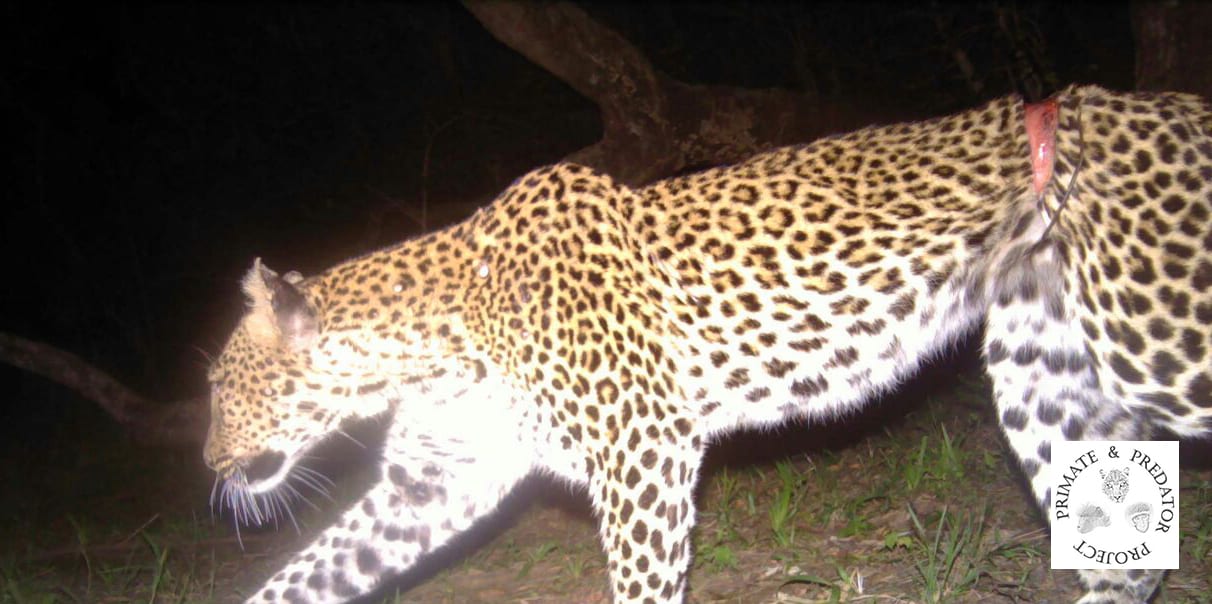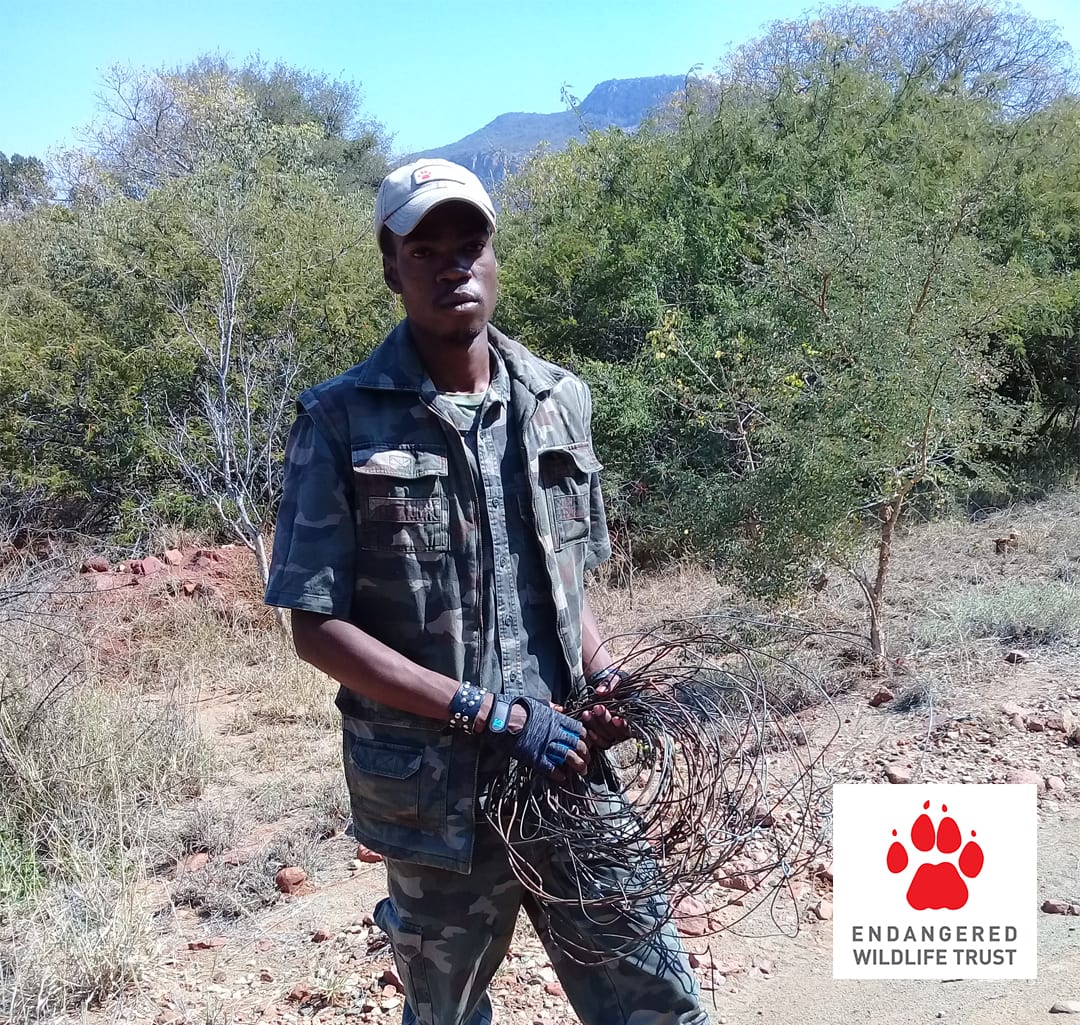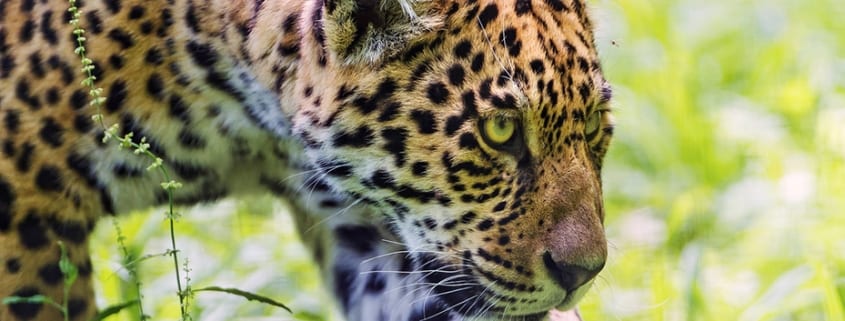Rainforest Trust Supports Effort to Rescue Snared African Leopard
Tokoloshe should have died within three weeks. That is the lifespan of other African Leopards caught in snares around their abdomen in South Africa’s Soutpansberg Mountains. Although an illegal practice in South Africa, snares are popular in the region, used by landowners to trap bushmeat and eliminate predators.
But this apex predator has made it six months. Tokoloshe is surviving with a metal snare wrapped around her belly, surprising wildlife researchers and those hoping to rescue her. A camera trap spotted her in an unprotected area as recently as October 11. Currently, only 1 percent of the Soutpansberg Mountains are formally conserved, meaning that leopards and other endemic species must continually traverse private farms and other properties.

Rainforest Trust is working with one of our local South African partners, Endangered Wildlife Trust (EWT) to purchase such properties and convert them to reserves. Establishing the Soutpansberg Protected Area will give vulnerable wildlife space to roam without the threat of snares and conflict with humans. Conservation biologist and manager of the Soutpansberg Protected Area Oldrich van Schalkwyk shares that, unfortunately, snaring is on the rise in this region of South Africa. The growing human population is encroaching on leopard habitat, and “the economy is in a recession at the moment, increasing the need for bushmeat. Leopards caught in snares on the western Soutpansberg seem to be bycatch from the bushmeat trade, although the body parts such as skin, bones, canine teeth and dewclaws will be traded opportunistically.” These strained circumstances led to Tokoloshe’s snaring. But she’s lived with her body parts intact.
Durham University’s Primate and Predator Project (PPP) is tracking Tokoloshe with the intent to humanely trap her, remove the snare and treat her wounds. But Tokoloshe – named after an evasive sprite in Zulu mythology – never stays in one place long enough for traps to be set. Not surprisingly, capturing leopards is dangerous for both the animal and people involved. The PPP team also wants to cause as little disruption to other wildlife as possible while helping the snared leopard. “Although it’s emotional to see such a majestic animal suffer at the hand of man, and we would like to relieve her suffering by removing the snare and treat her wound immediately,” states van Schalkwyk, “we are always mindful not to accidently trap non-target leopards.” Van Schalkwyk was asked to assist PPP with rescuing Tokoloshe because of his seven years of experience trapping leopards via a non-invasive process. As part of the partnership with EWT, Rainforest Trust is sponsoring van Schalkwyk in this rescue effort and his role as manager of the Soutpansberg Protected Area.
Tokoloshe has been spotted in trail camera footage just occasionally. According to the project, her condition is deteriorated but stable. The snare is cutting into subcutaneous tissue and superficial abdominal muscles, but is not so tight as to tear deep into her belly. Theoretically, she could survive in this compromised state for a while, but the PPP and its supporters are anxious to remove the snare. Last month, PPP’s camera grid photos indicated Tokoloshe is traveling with a male leopard. If she becomes pregnant, the snare will quickly slice through her growing abdomen, slowly killing both the developing cub and Tokoloshe in the process.

Along with the potential of pregnancy, rescuers are worried because tracking information show Tokoloshe spending a lot of time on the farm where she likely picked up the snare in the first place. Rainforest Trust has already made funds available for EWT to purchase this property and other threatened land parcels to expand the Soutpansberg Protected Area. Negotiations for purchasing these properties is underway, but in the meantime, van Schalkwyk is organizing an Anti-Poaching Unit to perform community outreach. They educate the public on the dangers of using snares (valuable domesticated animals on farms are just as likely to be snared as wildlife) and spend much of their time de-snaring properties where leopards and other vulnerable wildlife live.
Rainforest Trust hopes to share good news about Tokoloshe soon. If she is freed from her snare, she will one day enjoy a new protected area in South Africa’s threatened Soutpansberg Mountains.






